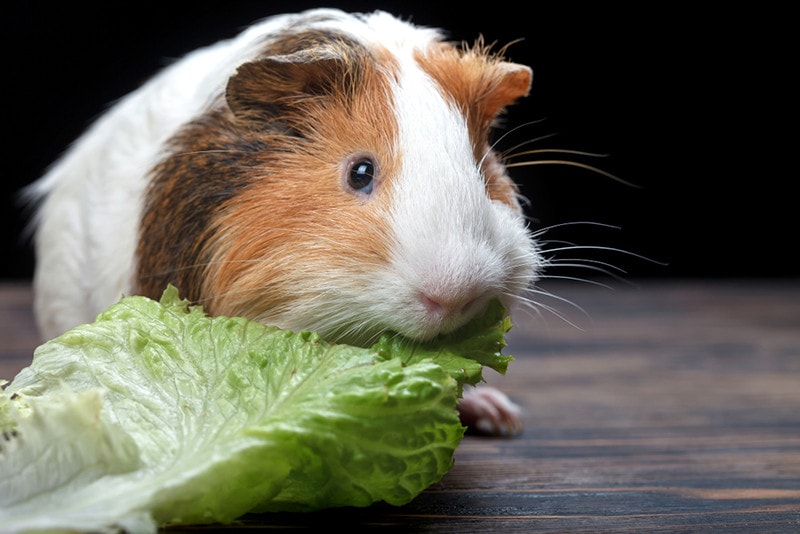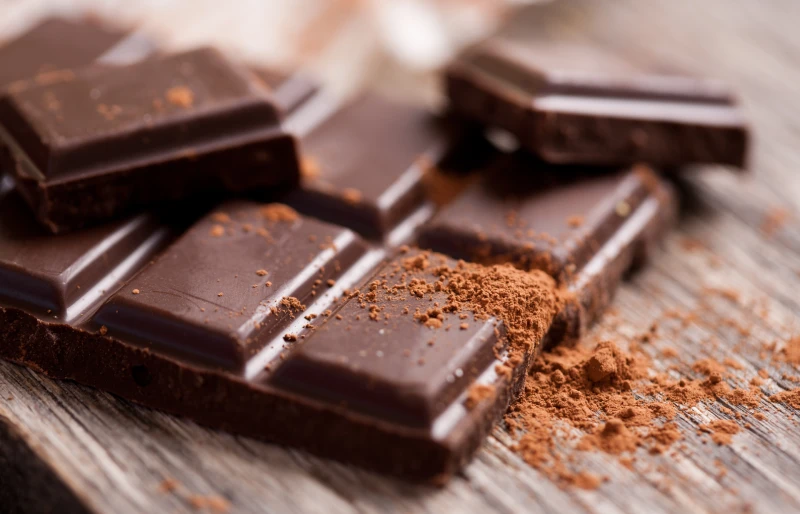Can Guinea Pigs Eat Rice? Vet-Reviewed Facts & Safety Guide
Updated on

Click to Skip Ahead
Guinea pigs, also referred to as cavies, make adorable little pets and excellent companions, but taking care of one requires the knowledge to do so properly. Guinea pigs require special attention and have sensitive digestive systems. If you’re a guinea pig owner, you may wonder if you can feed your guinea pig human foods, such as rice, for example. While it may seem healthy to feed rice, unfortunately, guinea pigs cannot eat rice.
Read on to learn why you cannot feed your guinea pig rice and what to feed your cavy to provide a healthy and balanced diet.
Why Can’t Guinea Pigs Eat Rice?
Now that we’ve learned that guinea pigs cannot eat rice, you may be wondering the reason why. The reason is that guinea pigs have sensitive digestion systems that are not meant to digest grains. Rice is high in complex carbs and sugar, which a guinea pig cannot handle. Another reason they cannot eat rice is you’d have to cook the rice, and guinea pigs should not eat cooked foods.
Guinea pigs are herbivores and need ad lib access to grass hays such as timothy hay, along with small amounts of guinea pig pellets, around a teacup of fresh veggies and the occasional fruit treat. Even minor changes to their diet and digestion can cause serious gastrointestinal disease such as diarrhea and GI stasis.1 GI stasis is when their digestive system slows down or stops moving completely and is potentially life threatening.

What Safe Human Foods Can I Feed My Guinea Pig?
Unlike rice, not all human foods are bad for guinea pigs. You can feed roughly 1 cup of fresh veggies daily, such as:
- Romaine lettuce (not iceberg)
- Parsley
- Kale
- Spinach
- Carrots
- Zucchini
- Cucumber
- Peas
- Artichoke
- Broccoli
- Bell peppers
- Cilantro
In addition to fresh veggies, you can also offer your cavy fresh fruits as treats that they will surely love. However, only provide fruits occasionally due to their high sugar content. Here is a list of safe fruits:
- Apples
- Strawberries
- Pears
- Oranges
- Kiwi
- Papaya
- Blueberries
- Peaches

Human Foods to Avoid Giving Your Guinea Pig
It’s vital to know what human foods to avoid giving your guinea pig, as some human foods can be dangerous and toxic. They include the following:
- Chocolate
- Caffeine
- Candy
- Onions
- Garlic
- Mushrooms
- Iceberg lettuce
- Nuts
- Avocados
- Corn kernels
- Seeds
- Potatoes
- Bok Choy
- Cabbage
- Peanut butter
- Dairy
- Bread
- Meat
- Dried fruits (high in sugar)

What Is a Healthy Guinea Pig Diet?
A healthy guinea pig diet should be balanced with timothy hay, pellets, and fresh veggies, along with the occasional fruit. 85-90% of your guinea pig’s daily diet should consist of hay and grass and it should be provided 24/7. The fiber it contains is essential to keep their teeth worn down and their digestive system moving.
- Commercial food: It’s best to select commercial guinea pig pellet food fortified with vitamin C, given that cavies cannot make their own, so they must get it from food. Also, choose pellet foods without dried fruit or seeds added. Follow the manufacturer’s guidelines, but you can usually safely provide 1/8 cup of commercial pellet food daily.
- Timothy hay: You should provide unlimited access to timothy hay, as it aids in smooth digestion and helps keep their teeth at a healthy length.
- Vegetables: In addition to commercial pellets and timothy hay, you can safely mix in 1 cup of safe veggies from the list above per day. A mixture of fresh, washed leafy greens, including some that are high in vitamin C, are ideal. Although they don’t naturally eat root vegetables in the wild, small amounts of vegetables such as carrots are also suitable for guinea pigs. Always introduce any new foods slowly and monitor for any issues.
- Fruits: Remember that fruits are high in sugar and should only be given in moderation. You can offer a small wedge of fruit several times a week, but remember to keep the portions small. You should also consult your vet on the appropriate amounts of fruit you can safely feed your particular cavy.
Why Can’t Guinea Pigs Eat Iceberg Lettuce?
We know that romaine lettuce is suitable to offer in moderation. On the other hand, iceberg lettuce contains high amounts of water and serves no nutritional benefits. Though iceberg lettuce is not toxic, diarrhea is a common issue in guinea pigs after eating iceberg lettuce, which could have dire consequences if given too much.

Conclusion
Sadly, guinea pigs should not be given rice due to the complex carb amounts and sugar content, which is not ideal for your guinea pig to digest. They should also never be fed cooked foods in general. Guinea pigs have very sensitive gastrointestinal tracts and even small changes in their diet can lead to serious GI problems such as diarrhea or GI stasis. Stick to the recommended guinea pig diet to give your cavy the best life possible, and always consult your vet for guidance before introducing new foods.
Don’t forget to offer fresh drinking water 24/7, and always provide a healthy balance of timothy hay, pellet food, fresh veggies, and the occasional fruit.
Featured Image Credit: Nishihama, Shutterstock













